2022 book notes (1)
I try to read "a lot". As I've gotten older, I've found I really enjoy reading books as a way to unanchor myself from the churn and thrashing of thought induced by trying to stay on top of a never-ending deluge of blog posts, news articles, etc.
I don't mean to say that in a judgemental way: I've just noticed, personally, that I tend to feel worse when I'm following too many feeds of incremental information, rather than getting the chance to stay in one person's head for a while. For me, it's almost like the difference between having a real meal versus scrounging together a series of small snacks over the course of the day. The meal takes a bit more forethought and planning, but leaves me feeling much more healthy and satisfied.
I'm sure that my personally-lived experience with these things is empirically different from others', and so I'm not a zealot for the cause of High Literature or anything. That said, I have definitely noticed that it can be hard to keep a full queue of books I'd like to read next, and a lot of that stems from people just not providing rough notes on what they've read recently. So, I figured I might as well do that myself, giving periodic updates on books I've read (or re-read) recently.
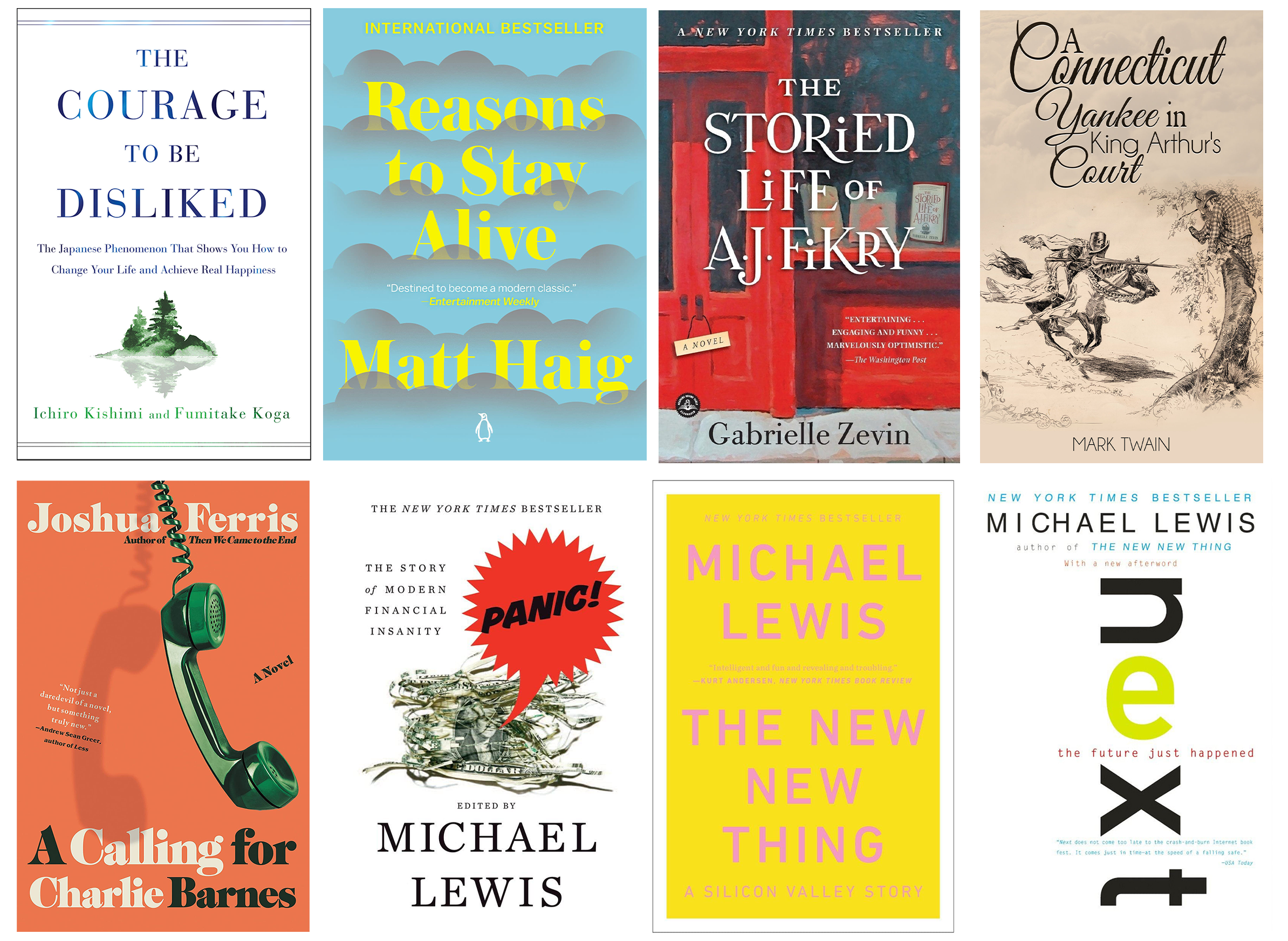
Books I've read (or re-read) in 2022 so far:
- The Courage to Be Disliked
- Reasons to Stay Alive
- The Storied Life of AJ Fikry
- A Conneticuit Yankee in King Arthur's Court
- A Calling for Charlie Barnes
- Panic: The Story of Modern Financial Insanity
- The New New Thing: A Silicon Valley Story
- Next: The Future Just Happened
There is some fuzziness with the first two titles here, which I think I started again back in December, but no matter. I will also say that I'm a big believer in not just reading but re-reading books, as I usually find the content a lot more memorable upon revisiting. I know a book is really good when I don't just enjoy reading it once, but find the re-read to be even better.
On with the notes!
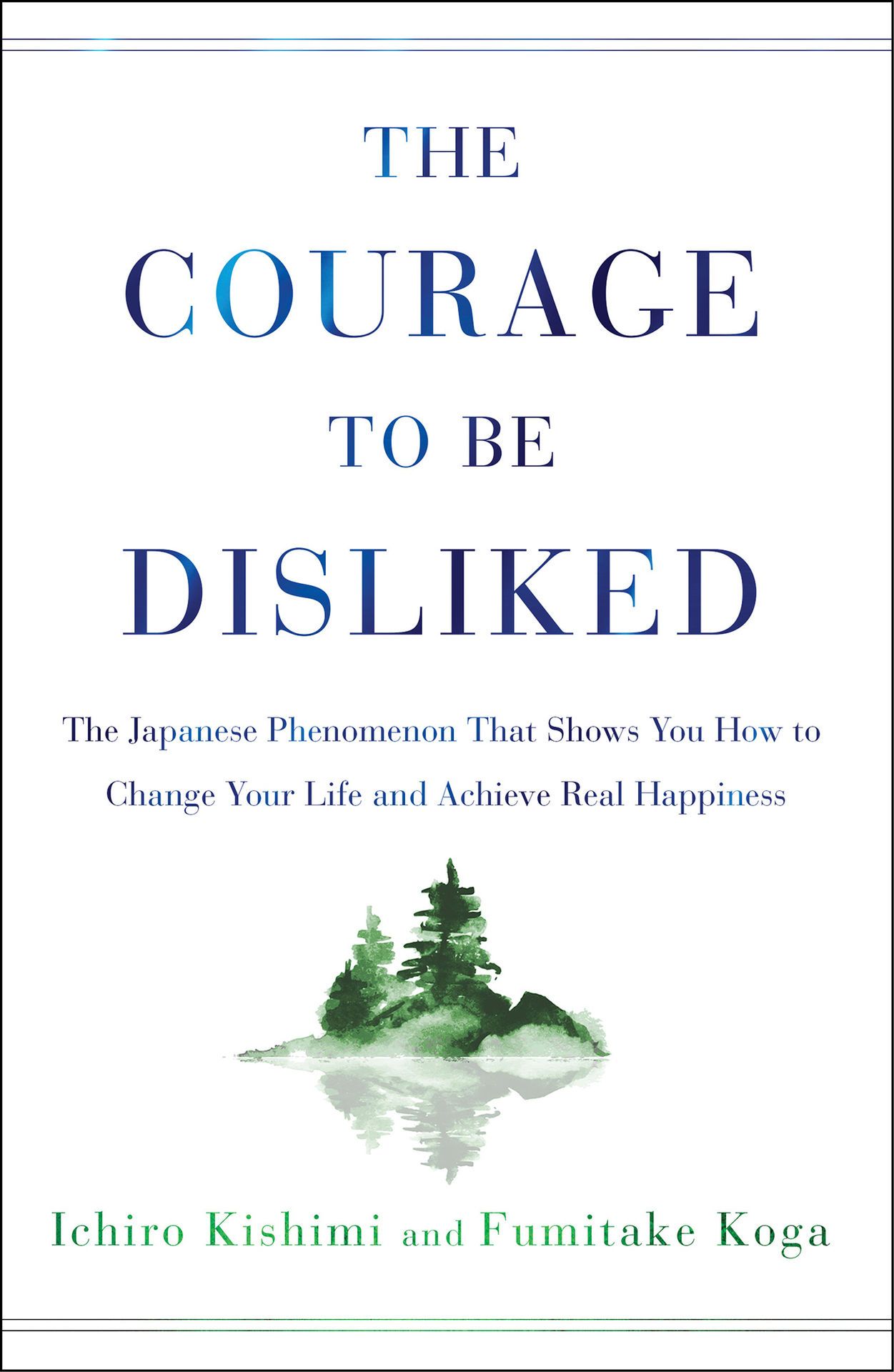
(re-read)
The Courage to Be Disliked by Ichiro Kishimi and Fumitake Koga
288 pages
First published: 2013
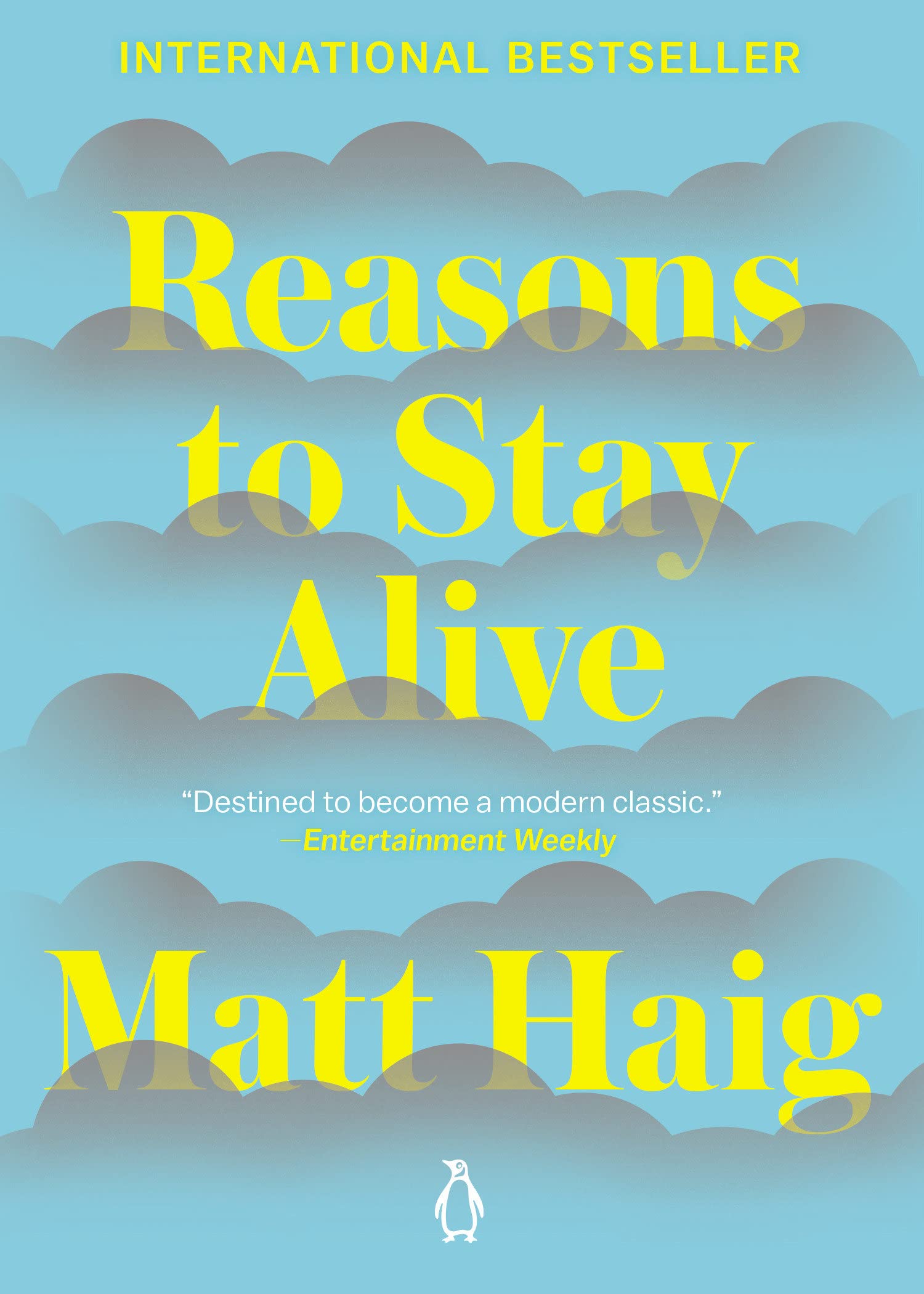
(first read)
Reasons to Stay Alive by Matt Haig
264 pages
First published: 2015
I've developed something of a taste for "self-help" books of late, due in large part (I'm sure) to my ongoing mentoring meetings with various grant recipients from The American Leadership Foundation.
Empirically, it seems that a lot of the kids have a taste for what amount to "how-to" guides on life; I've heard a few mention that they've been digging into assorted works by Cal Newport and the like. At first I think I was a bit surprised by that, but as I try to think back and remember, fleeting memories of myself doing the same kind of thing come back to me. Looking around online for "productivity tips" or something of the sort; I don't think any made a lasting impression on me, but it occurs to me that maybe if I'd found better material then things would've been different. To that end, I'm trying to read/re-read various titles in the genre to develop a good feel for what I might recommend.
The Courage to be Disliked holds up very well, and I would unabashedly recommend. Presented as a series of dialogues between a philosopher and a youth, the text presents various ideas from Adlerian psyschology, with light tie-ins to other philosophical thought (particularly Greek philosophy) and constrasts to Freudian psychology.
I had actually recalled it being more challenging/confrontational of a text than I think it really is upon re-reading — I remember being a bit surprised by the "denial of trauma" argument in particular, and thinking that was kind of edge-y. Upon review, I don't think you could consider it deeply controversial, per se; it just frames things very differently than our current cultural discourse. The "imaginary conversation" framing is still a bit clunky, but works for conveying ideas. In sum, I consider it to be a very useful book, more than anything, and would definitely recommend it.
Reasons to Stay Alive was an easy enough read, but I wouldn't necessarily consider it helpful in the way that this genre is at its best. The book is, essentially, a memoir of Haig's struggles with depression, jumping around a bit over the years in which he was struggling most.
One might consider two potential audiences for the text: people currently struggling with severe depression, and people close to those currently struggling with severe depression. The former might find themselves a bit less alone in their current feelings (though I, unfortunately, have doubts about that, as the disease tends to squash one's ability to feel that kind of human connection), while the latter might find the text helps them understand their loved one's better (which seems much more plausible).
The essential problem with Reasons, common to many personal accounts of depression, is that Haig just sort of "held on" — with tremendous support from his girlfriend-then-wife — and things eventually just kind of... got better. That is, almost undoubtedly, an honest accounting of the facts, but it's not tremendously useful for the prototypical reader in either of the aforementioned camps, as it's unclear what deeper meaning can be gleamed and supplanted into one's own life. There are some specific tips (like recommendations on novels to read), and the writing is clear and easy to plow through, even while covering a very heavy topic. There's also an overarching spirit of compassion that makes the book altogether warming to read. Ultimately, though, it's not necessarily a title I would recomend to anyone, and I do not expect I'll be drawn to re-reading it.
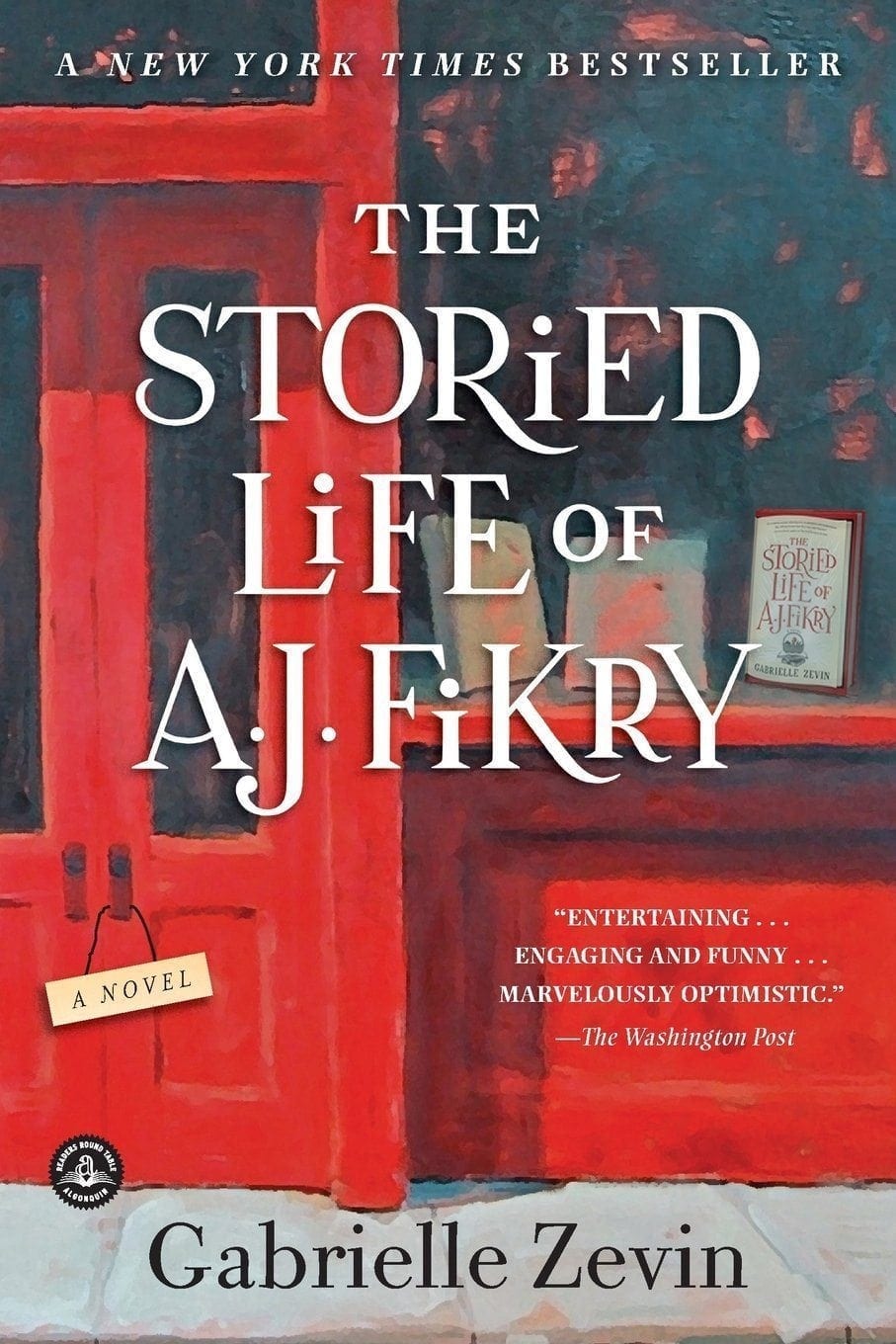
(first read)
The Storied Life of A.J. Fikry
by Gabrielle Zevin
first published: 2015
288 pages
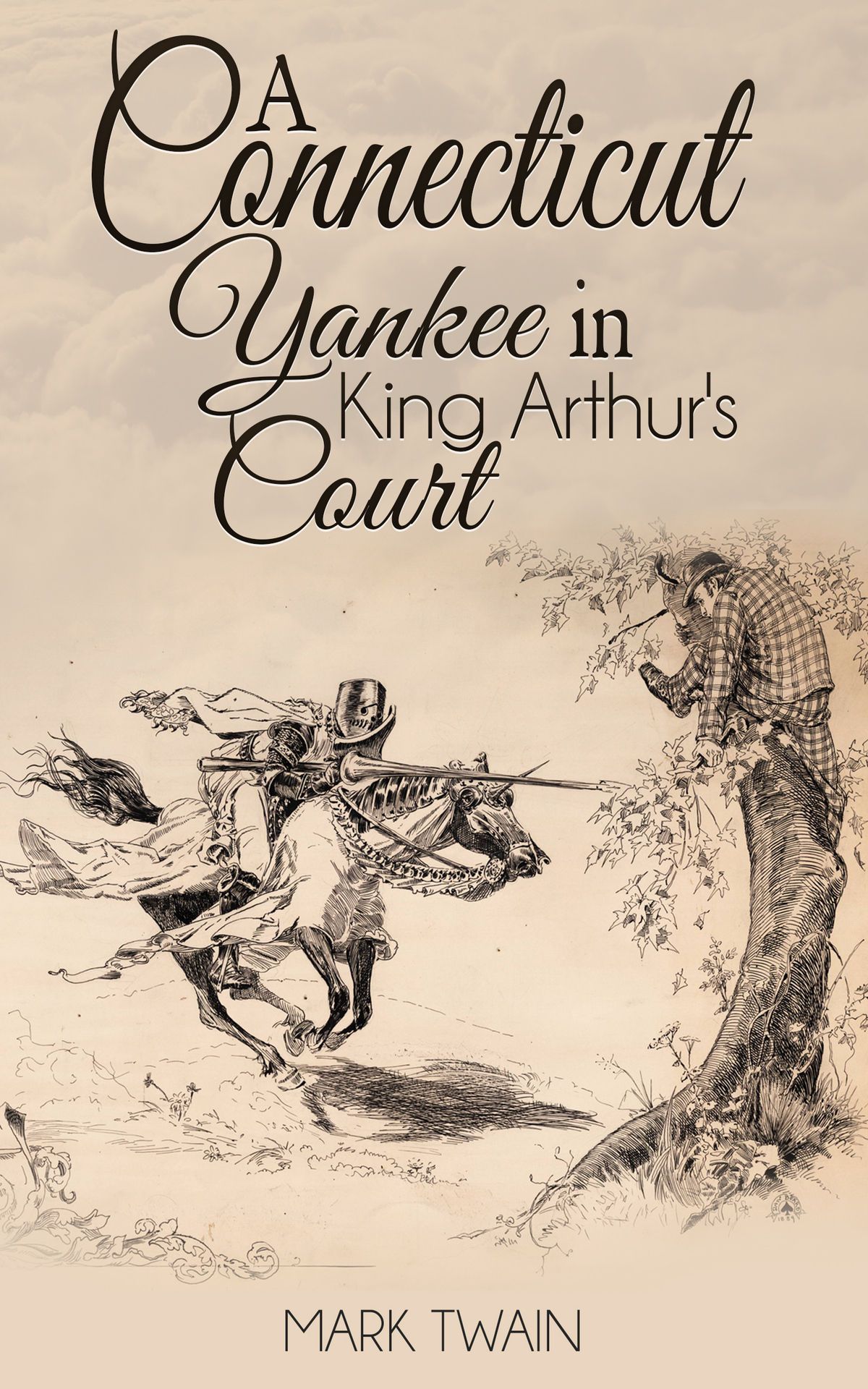
(first read)
A Conneticuit Yankee in King Arthur's Court
by Mark Twain
first published: 1889
528 pages
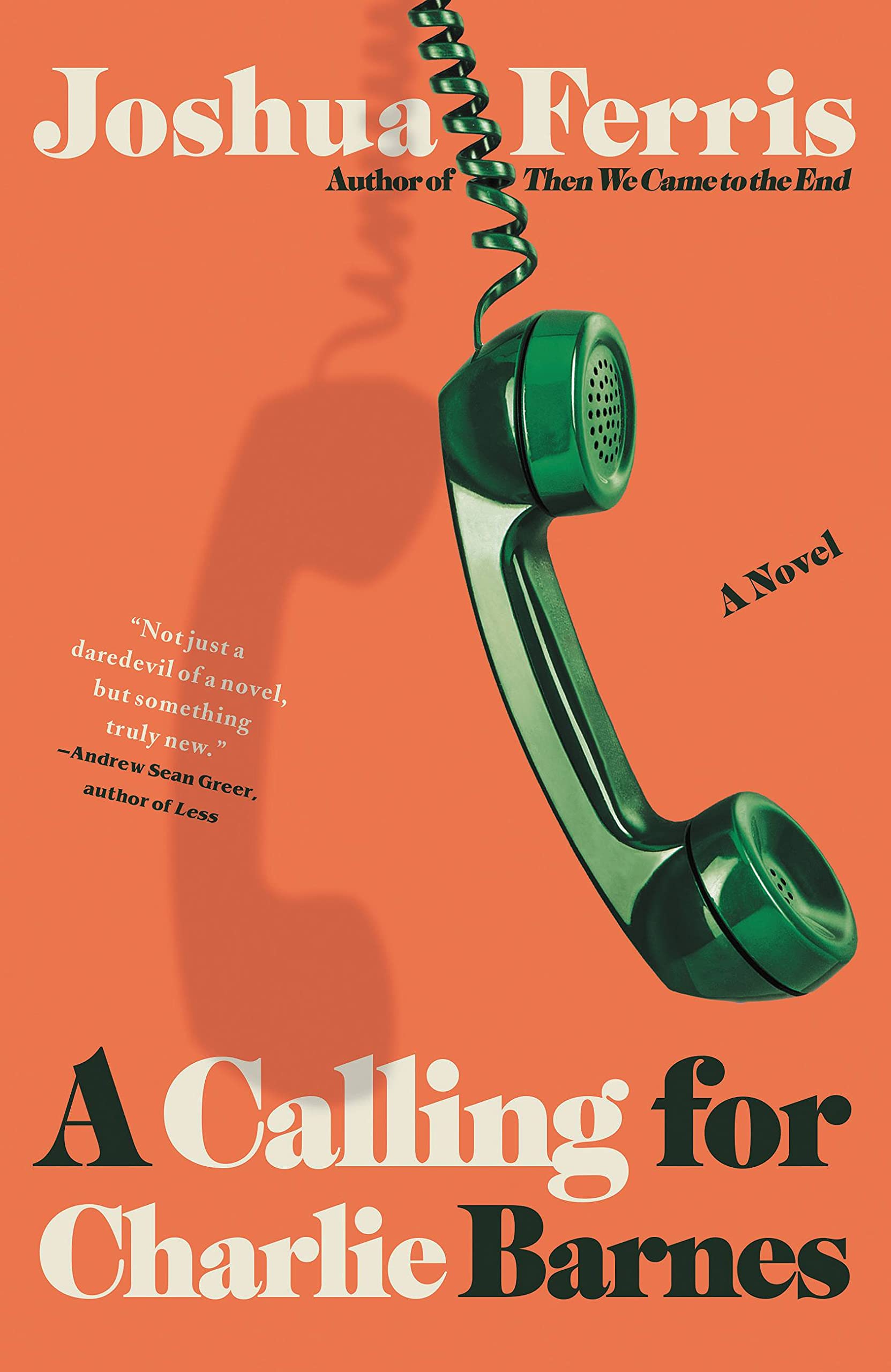
(first read)
A Calling for Charlie Barnes
by Joshua Ferris
first published: 2021
352 pages
I might present this group as my "post-modern" block for January. Of course, A Conneticuit Yankee far precedes the other titles here as well as the entire concept of "post-modernism" (at least in name), but the grouping still makes sense to me.
The Storied Life of A.J. Fikry is an old favorite for me at this point. A widowed man loses his fortune, finds himself adopting a daughter, and rebuilding his life. Said widowed man is a bookseller in a small New England town — because of course he is — and this allows for all kinds of literary fun in the writing, along with light commentary on the state of publishing that is generally enjoyable, even if it doesn't ever seem to come to much of a point.
There are a lot of ways in which The Storied Life might have ended up too "inside baseball" or just generally cringeworthy in how prototypically writing-for-writers-and-book-people it is, but it stays on the fair side of that foul line. The story is actually delightfully structured, and you get the feeling that all the characters in it represent real, three-dimensional human beings, with gifts and faults and conflicting principles, all the etceteras.
When I first read it, oddly, I had the feeling that it was longer than it was. The chapters break sections of the narrative down into small stories of themselves, which probably enhanced that feeling.[1] Upon revisiting, I find the book to still be satisfying, but, if anything, actually a bit short. I don't see any room for the story to be expanded further, but I still find myself wanting more. I'll have to make a point to add other books by Zevin to my "to-read" list; apparently she has another coming out this year.
A Conneticuit Yankee in King Arthur's Court is one of those books I had somehow just never gotten around to reading before. (Who knows why; go figure.) A man from late 19th century Conneticuit is transported back in time to 6th century England, hijinks ensue.
The story is enjoyable overall. I will give a special nod here to Nick Offerman's recording of the text for Audible as particularly good in a casual-adventure-listening sort of way that I could dip in and out of without worrying too much about. The tale runs a bit long, maybe — the reader is mainly being walked through a series of narrative set pieces rather than a more cohesive whole that reinforces itself — but, honestly, it's fun and fine and not everything needs to be thought to death.
Reading this book as an adult with no prior framing, the one piece that struck me the most was the complicated relationship Twain's authorial persona seems to have with his narrator-protagonist. It's a Twain book, so it's loaded with satire, but Twain has a turn poking fun at everyone here, so there will be times when main character Hank Morgan swings from the butt of the joke to being depicted as a genuinely admirable creature and then back again, all in the span of 50 pages. There's a genuine complexity there that I wouldn't have expected for a book that (as I remember it) is broadly prescribed to middle school English classes.
A Calling for Charlie Barnes has a neat connection there, as a text that's happy to both chastise and celebrate its characters — while somehow conveying the sense that it has more thoughts about the world than it cares to directly articulate.
A fictional biography of an ordinary man (the titular Charlie Barnes), as written by his adopted son — Jake Barnes, a novelist — that centers around the first man's cancer diagnosis. The narrative steps back and forth across time as Jake seeks to explain his family through their shared past, cutting back to the "present" to discuss Charlie's medical treatment or a family argument before jumping back again so that Jake can fill in more context.
The basic structure here is that of most good contemporary non-fiction writing: there's a core narrative concept that supports digressions to other places and times, and the pieces layer together in a way that never leaves you feeling stranded in a textual cul-de-sac. Since it is a novel, Ferris is able to add some extra flair — one plot point of the book comes from other family members of Jake and Charlie reading an early draft of the book they're in — but it's striking how capably Ferris recreates a certain New Yorker feature-story sensibility in the novel's structure as well as its language.
I read this book and then immediately re-read it, as it just worked on so many different levels for me. Clever constrution, complelling characters, strong prose, all the etceteras. Ferris manages that wonderful feat of looking at ordinary life with eyes wide open and finding a way to report back on those observations in a way that leaves you feeling recognized and imbued with a certain sense of meaning.
If you're a fan of This American Life, you probably know what I mean when I say there's a kind of poignant "ah-ha" moment that the show almost specializes in hitting you with — the moment where a hazy, somewhat arbitrary beginning to a story suddenly flips into something clear and quietly profound. A Calling for Charlie Barnes is a novel's worth of those moments.[2]
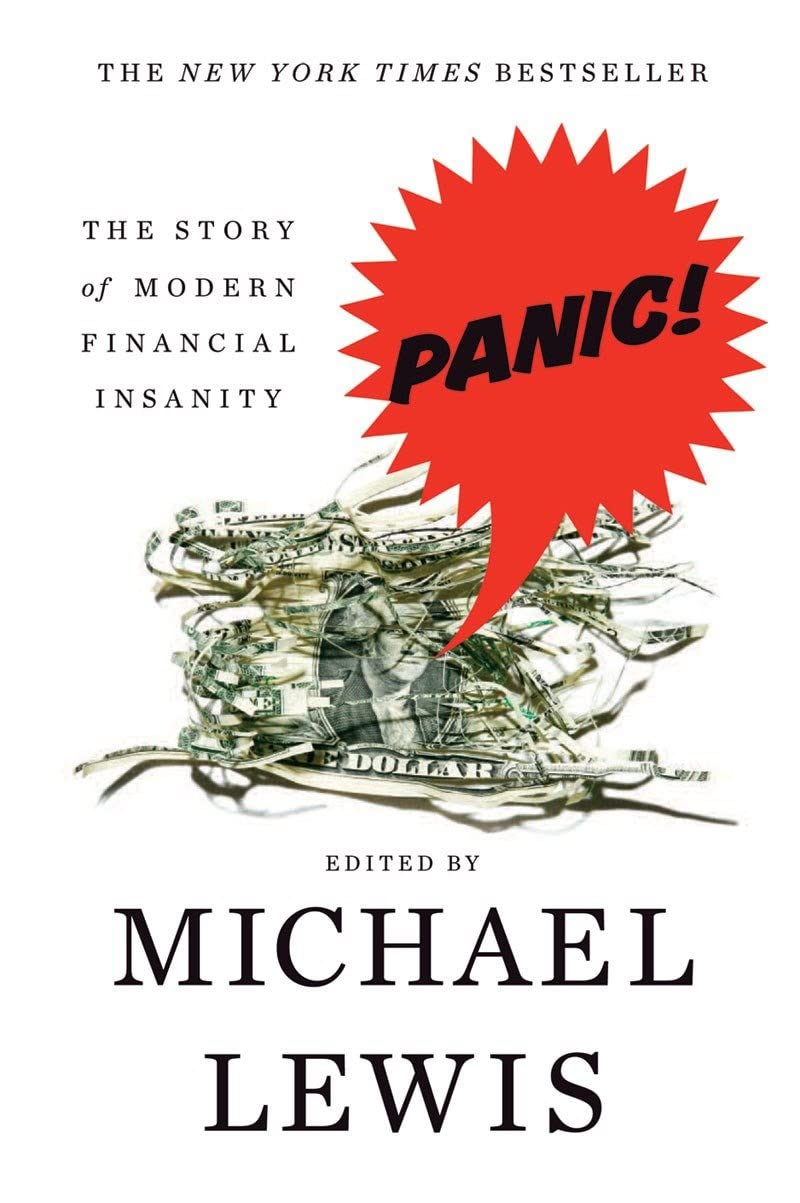
(re-read)
Panic: The Story of Modern Financial Insanity
edited by Michael Lewis
first published: Dec 2008
400 pages
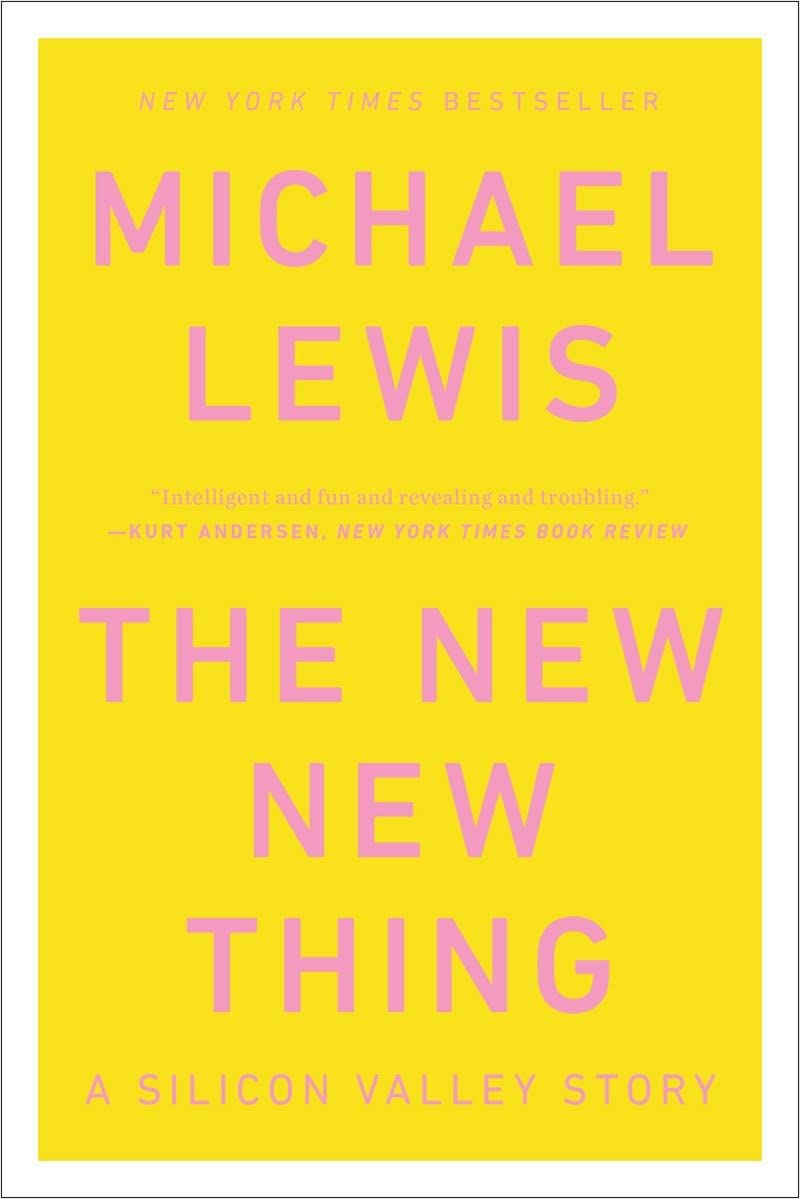
(re-read)
The New New Thing: A Silicon Valley Story
by Michael Lewis
first published: 1999
349 pages
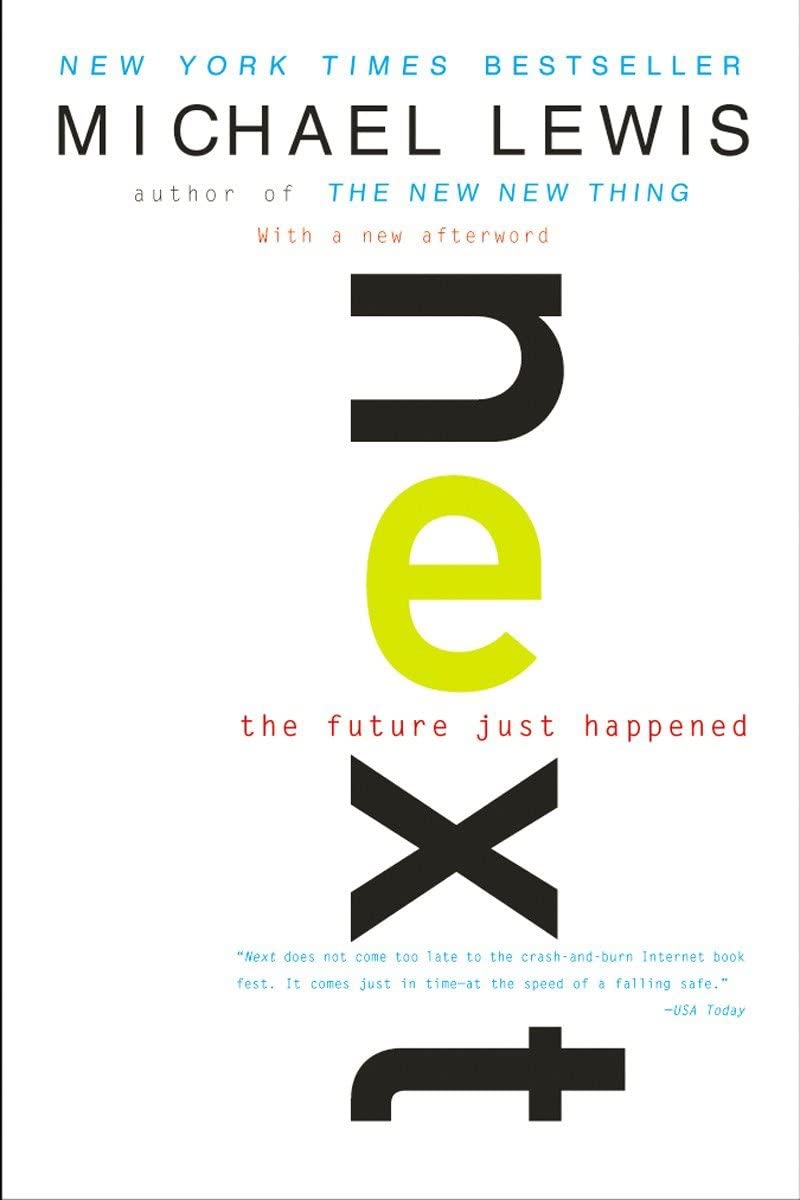
(re-read)
Next: The Future Just Happened
by Michael Lewis
first published: 2001
240 pages
Prices for "growth stocks" (especially high-multiple tech stocks) started to rapidly deflate around October/November of last year; in January, that weakness seemed to spread to the broader world of equities, and the resulting anxieties about a probable bear market stoked my interest in dipping back into Panic, which in turn led to re-reading Lewis's works from around the dot-com boom era.
Panic: The Story of Modern Financial Insanity is a bit of an odd ball: a collection of newspaper and magazine stories (by a wide array of authors) written before, during, and after assorted financial crises since the 1980s. It almost undoubtedly sprang up as a way to monetize research Lewis did while writing The Big Short.[3] But even if it's a cash grab, it's not an unwelcome one — there's a lot of meaning to be gained from the zoomed out perspective it gives as it steps through so many tumultuous market events in quick succession.
Some of the financial panics examined, like the Asian currency crisis of the 1990s, feel like vaguely refreshing topics, simply because they're not often thought about or discussed in more "mainstream"/"pop-econ" channels. The biggest surprise on this most recent re-reading, though, was realizing that the dot-com boom and bust somehow fits into that category also. Not because people don't ever discuss the dot-com era, but simply because it's been charicatured down too far for the short-hand comparisons found today to be useful.
That, in turn, led me to re-reading both The New New Thing and Next: The Future Just Happened, Lewis's two books from the era (both written entirely by him), and which I found to hold up so remarkably well that I want to do an entire essay just on them and some thoughts about the era — what's been carried over, what's been lost, and how we grapple with its "lessons" today.
Hope I have time for that soon.
Each section also begins with notes from the main character on a real book or short story, which was part of the inspiration for me wanting to write these notes. ↩︎
I'd also give a nod here to the various novels by Fredrik Bakman, which share a certain emotional sensibility with A Calling for Charlie Barnes, even if there are a lot of superficial or thematic differences. ↩︎
It was first published very shortly after the onset of the Global Financial Crisis, providing a timely stop-gap solution for content flow. It'd be another year and change before The Big Short was first published. ↩︎